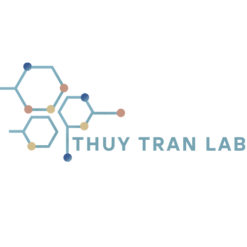Karolinska Institutet, located in Stockholm, Sweden, is at the forefront of research and innovation in the field of translational theranostics. This research lab is dedicated to developing the next-generation of targeted radiopharmaceutical therapy and antibody- and peptide drug conjugates.
Translational theranostics is an emerging field that combines diagnostics and therapeutics to provide personalized medicine solutions. It focuses on developing targeted therapies that can both diagnose and treat diseases. The goal is to improve patient outcomes by delivering precise treatments that specifically target diseased cells while minimizing side effects.
At Karolinska Institutet, the research team is working tirelessly to advance the field of translational theranostics. They are developing innovative radiopharmaceuticals that can be used for both imaging and therapy. These radiopharmaceuticals are designed to selectively bind to specific targets on cancer cells, allowing for accurate diagnosis and targeted treatment.
In addition to radiopharmaceutical therapy, the lab is also focused on the development of antibody- and peptide drug conjugates. These conjugates combine the specificity of antibodies or peptides with the therapeutic potential of drugs. By attaching drugs to antibodies or peptides, the researchers are able to deliver the drugs directly to the diseased cells, increasing their effectiveness and reducing systemic toxicity.
One of the key areas of research at Karolinska Institutet is the development of targeted therapies for cancer. The researchers are exploring different targets on cancer cells and developing novel radiopharmaceuticals and drug conjugates to specifically target these markers. This approach has the potential to revolutionize cancer treatment by providing more effective and personalized therapies.
The research lab at Karolinska Institutet is equipped with state-of-the-art facilities and cutting-edge technology to support their research efforts. They have access to advanced imaging systems, including PET and SPECT scanners, which allow for high-resolution imaging of disease markers. This imaging data is then used to guide the development of targeted therapies.
Collaboration is a key aspect of the translational theranostics research at Karolinska Institutet. The researchers work closely with clinicians and industry partners to ensure that their findings can be translated into clinical practice. This collaborative approach accelerates the development and implementation of new therapies, ultimately benefiting patients.
The work being done at Karolinska Institutet is paving the way for the future of translational theranostics. The advancements in targeted radiopharmaceutical therapy and antibody- and peptide drug conjugates have the potential to revolutionize the way diseases are diagnosed and treated. With continued research and innovation, Karolinska Institutet is poised to make significant contributions to the field of translational theranostics.
